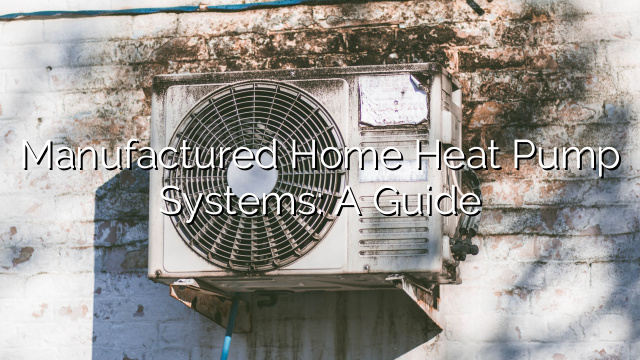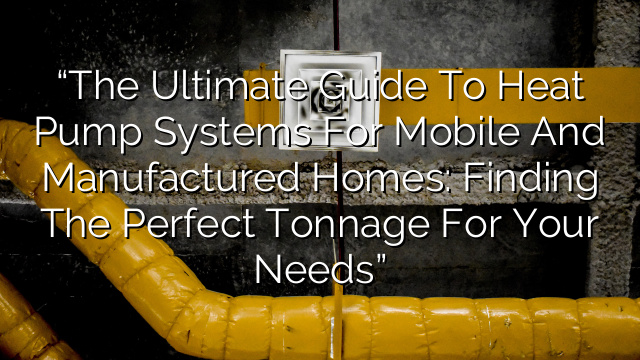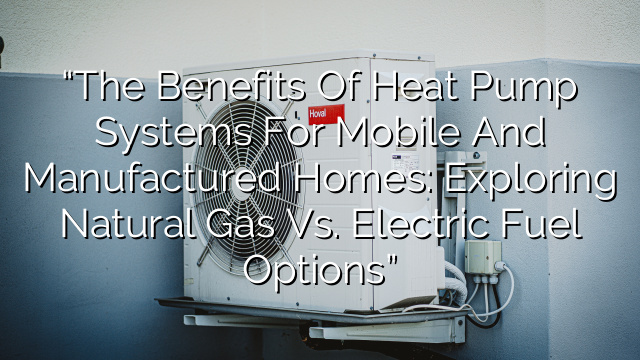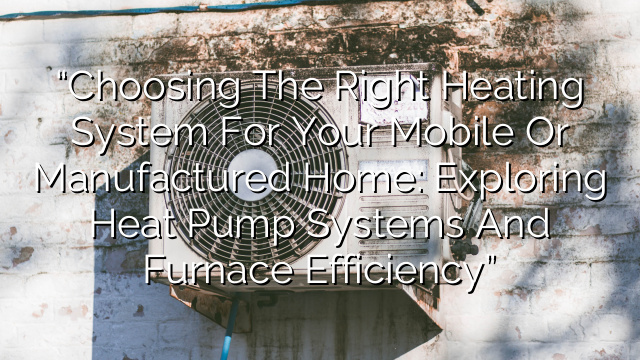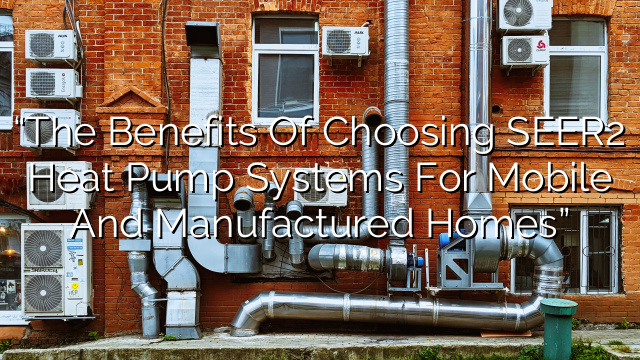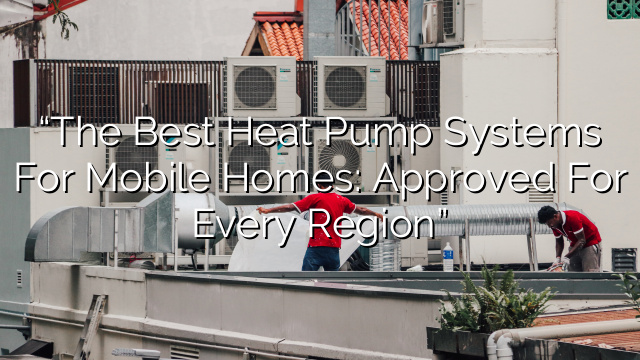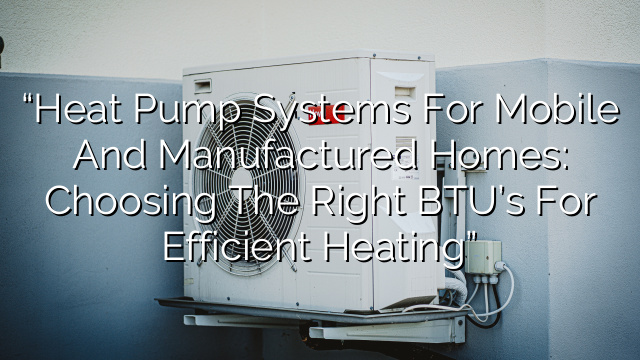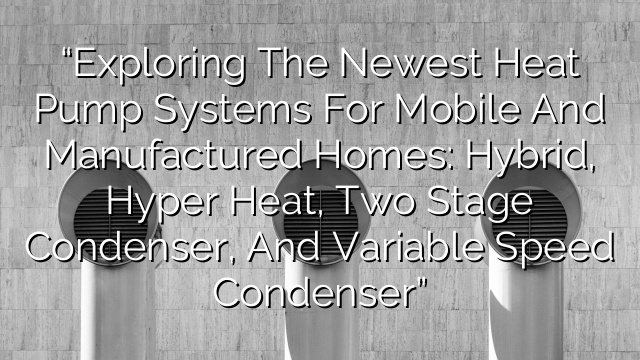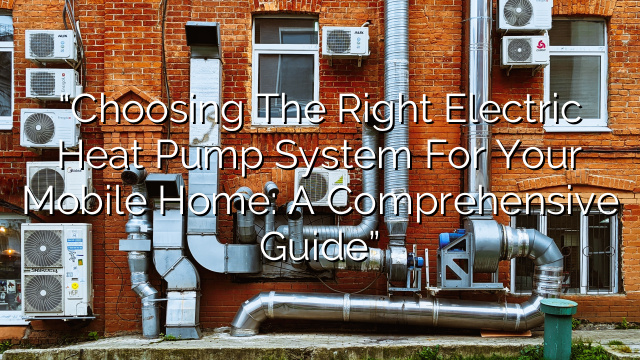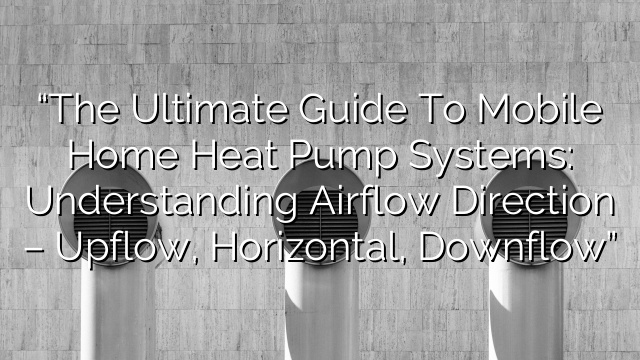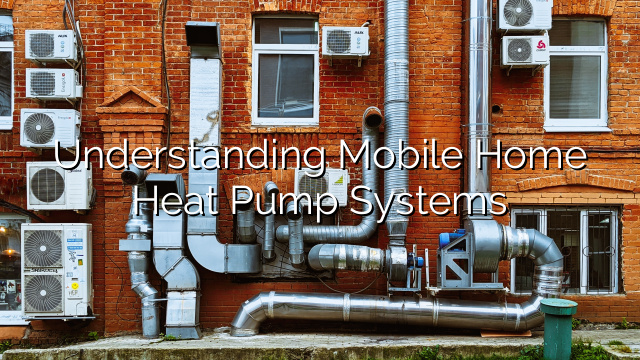Introduction
When it comes to heating and cooling your manufactured home, a heat pump system can be a great option. Heat pumps are energy-efficient, cost-effective, and provide both heating and cooling capabilities. In this guide, we will explore everything you need to know about manufactured home heat pump systems, including how they work, their benefits, installation considerations, and more.
How Do Manufactured Home Heat Pump Systems Work?
Heat pumps work by transferring heat from one place to another using refrigerant. In heating mode, the heat pump extracts heat from outside air and transfers it indoors to warm up your home. In cooling mode, the heat pump absorbs heat from indoor air and releases it outside, leaving your home cool and comfortable.
Manufactured home heat pumps typically consist of two main components: an outdoor unit and an indoor unit. The outdoor unit contains the compressor, condenser coil, and fan, while the indoor unit houses the evaporator coil and blower. These two units are connected through refrigerant lines.
The Benefits of Manufactured Home Heat Pump Systems
There are several advantages to opting for a heat pump system in your manufactured home:
- Energy efficiency: Heat pumps are known for their energy efficiency. They can achieve high efficiencies by moving heat rather than generating it, making them more cost-effective to operate than traditional heating and cooling systems.
- Cost savings: Due to their energy efficiency, heat pumps can help you save on your monthly energy bills. According to the U.S. Department of Energy, homeowners who switch to a heat pump system can save up to 30% on heating costs and up to 50% on cooling costs compared to other heating and cooling systems.
- Dual functionality: One of the primary advantages of heat pumps is their ability to provide both heating and cooling. This means you only need one system to maintain a comfortable temperature year-round.
- Environmentally friendly: Heat pumps produce fewer carbon emissions compared to traditional heating systems, making them a more environmentally friendly option.
- Durable and long-lasting: With proper maintenance, heat pump systems can last for 15 to 20 years or more, providing you with long-term heating and cooling solutions for your manufactured home.
Installation Considerations for Manufactured Home Heat Pump Systems
Before installing a heat pump system in your manufactured home, there are a few important considerations to keep in mind:
- Sizing: It’s crucial to choose the right-sized heat pump for your home to ensure optimal performance and energy efficiency. A professional HVAC technician can help determine the appropriate size based on factors such as the square footage of your home, insulation levels, and climate.
- Ductwork: If your manufactured home has existing ductwork, it can be used with a heat pump system. However, it’s important to check the condition of the ducts and seal any leaks to maximize energy efficiency.
- Airflow: Proper airflow is essential for the efficient operation of your heat pump system. Ensure that there are no obstructions around the outdoor unit, and clean or replace air filters regularly to maintain good airflow.
- Location: The outdoor unit of your heat pump system should be installed in a well-ventilated area away from obstructions and direct sunlight. It’s important to follow the manufacturer’s guidelines for proper installation.
- Maintenance: Like any HVAC system, heat pumps require regular maintenance to ensure their longevity and efficiency. Schedule annual maintenance appointments with a professional HVAC technician to inspect, clean, and tune-up your heat pump system.
Common Questions About Manufactured Home Heat Pump Systems
Q: Can a heat pump system be used in extremely cold climates?
A: While heat pumps can operate in colder climates, their efficiency decreases as the outdoor temperature drops. In extremely cold climates, a backup heating source, such as electric resistance heating or a furnace, may be required.
Q: How much does a manufactured home heat pump system cost?
A: The cost of a heat pump system for a manufactured home can vary depending on factors such as the size of the home, the efficiency rating of the heat pump, and any additional installation requirements. It’s best to obtain quotes from reputable HVAC contractors for accurate pricing.
Q: Can I install a heat pump system myself?
A: Installing a heat pump system involves complex electrical and refrigerant work, and it’s generally recommended to hire a professional HVAC technician for the installation. This ensures the system is correctly sized, installed, and optimized for your manufactured home.
Q: How often should I change the air filters in my heat pump system?
A: It’s generally recommended to change the air filters in your heat pump system every one to three months, depending on factors such as the air quality in your home and the type of filter used. Regularly changing the filters helps maintain good airflow and prevents dust and debris from clogging the system.
Q: Do heat pumps make a lot of noise?
A: Heat pumps produce some noise during operation, but newer models are designed to operate quietly. Proper installation and routine maintenance can also help minimize noise levels.
Conclusion
Manufactured home heat pump systems offer energy-efficient, cost-effective, and dual-functionality heating and cooling solutions. Whether you’re looking to upgrade your existing HVAC system or install a new system in your manufactured home, a heat pump can be an excellent choice. Consider the benefits, installation considerations, and maintenance requirements discussed in this guide to make an informed decision for your heating and cooling needs. If you have any further questions, don’t hesitate to reach out to a professional HVAC technician.

